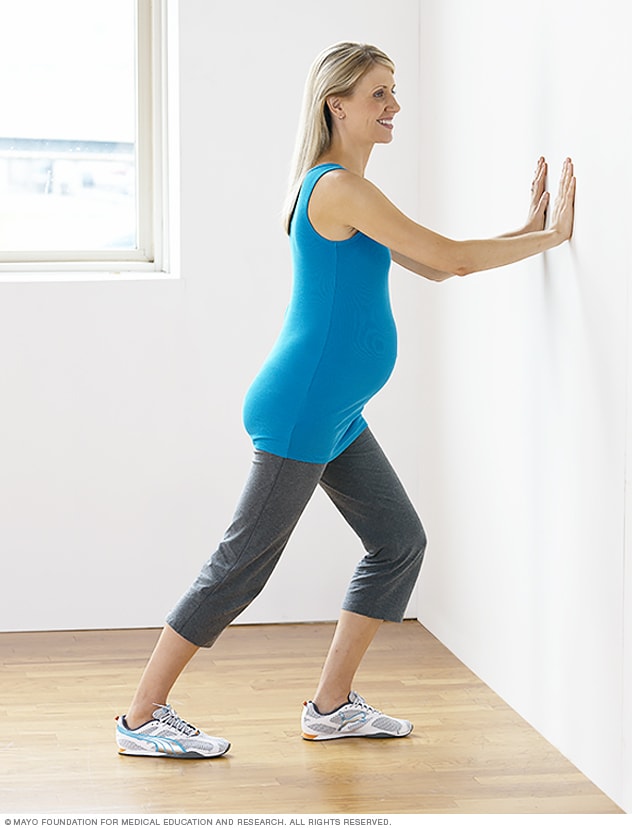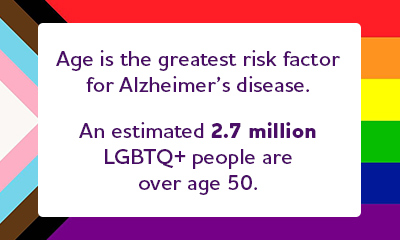3rd trimester pregnancy: What to expect
The third trimester of pregnancy can be a challenge for the body and the mind. Here’s help easing symptoms — and anxiety — as your due date approaches.
The final 12 weeks of a full-term pregnancy are known as the third trimester of pregnancy. The third trimester can be full of excitement. It also may challenge your body and mind.
The size and position of the unborn baby, also called a fetus, in the uterus might make it hard for you to get comfortable. You may be tired of pregnancy and eager to move on to the next stage. And you might feel let down if you don’t give birth by your due date.
Try to stay upbeat as you look forward to the end of your pregnancy and the birth of your baby. Here’s what to expect as you wait.
Your body
As your pregnancy progresses, the baby’s movements likely will become easier to feel. These movements often happen along with more discomfort and other symptoms, including:
- Braxton Hicks contractions. These slight feelings of tightness in the stomach area vary in strength and length. They often come and go. But they’re more likely to happen in the afternoon or evening, after physical activity or after sex. These contractions also tend to happen more often and become stronger as your due date gets closer. Contact your healthcare professional if you have more than six contractions an hour and they steadily get stronger. That might mean you’re going into labor.
-
Backaches. Pregnancy hormones relax the connective tissue that holds bones in place, especially in the pelvic area. The growing uterus also stretches out muscles in the stomach area. These changes often cause back pain during the third trimester of pregnancy.
For relief, choose chairs with good back support when you sit. If you need to stand for a while, rest one foot on a box or stool to ease back strain. Abdominal support garments sold in maternity stores also may help. A heating pad or a cold pack may ease sore back muscles too. Be sure to get regular exercise such as walking to keep your back muscles in shape. Wear low-heeled shoes that give you good arch support. Don’t wear flat shoes or high heels. Call your healthcare professional if you have serious or ongoing back pain. Physical therapy may help.
- Shortness of breath. Often, this symptom is due to pressure building under the rib cage as a baby grows in the uterus. You also may notice shortness of breath if you lie on your back or recline. You may need to rest on your side instead. The maximum amount of air the lungs can carry also expands. So you may breathe a bit faster and get winded easily. Practice good posture to give your lungs more room to expand.
- Heart palpitations. These bouts of fluttering or pounding in the chest may feel like skipped heartbeats. Most often, you don’t need to worry about heart palpitations. They may happen because blood might be slower to return to the heart as the uterus gets bigger. Palpitations usually happen less often later in pregnancy. But tell your healthcare team if you have fluttering or pounding heartbeats. It’s especially important to contact your care team if you have palpitations along with chest pain or shortness of breath. With these symptoms, your healthcare professional likely will need to check you in person.
-
Heartburn or constipation. Both of these issues can happen during the third trimester. That’s because pregnancy hormones slow down digestion, and the growing uterus presses on the intestines.
Eat small meals often to help prevent heartburn. Try not to lie down right after you eat. Drink water between meals. Don’t eat fried foods, citrus fruits, chocolate, and spicy or fried foods. Also stay away from carbonated drinks and foods with lots of tomato. If you’re constipated, drink plenty of fluids, and do light physical activity such as walking. Eat fiber-rich foods such as fresh or dried fruit, raw vegetables, and whole-grain cereals. Don’t take constipation medicines such as stool softeners or laxatives unless your healthcare professional says that’s OK.
-
Spider veins, varicose veins and hemorrhoids. Greater blood flow may cause tiny red-purplish veins to appear. These are called spider veins. Their color may look different depending on your skin tone. They may show up on your face, neck and arms. The redness tends to fade after you give birth. Swollen veins called varicose veins also may show up on your legs. Painful, itchy varicose veins in the rectal area, called hemorrhoids, may appear too.
Exercise and prop up your legs often to ease swelling. You also can use compression socks if needed. Try not to stand for a long time or sit with your legs crossed. And try not to strain while passing stool. Eat more fiber-rich foods, and drink lots of fluids. For hemorrhoid relief, soak in a warm tub to ease hemorrhoid symptoms. Or place witch hazel pads on the affected area. If these steps don’t work, talk with your healthcare professional about using hemorrhoid creams.
-
Frequent urination. As the baby moves deeper into your pelvis, you’ll likely feel more pressure on your bladder. You may urinate more often. This extra pressure also may cause you to leak urine — especially when you laugh, cough, sneeze, bend or lift.
It may help to take bathroom breaks often and to do exercises called Kegels that strengthen the muscles that control urination. You also may want to use panty liners to absorb leaked urine. If you think you may be leaking the clear liquid that surrounds your baby in the uterus, contact your healthcare professional. This liquid is called amniotic fluid. Also contact your healthcare professional if you feel burning along with frequent urination. This can be a symptom of an infection.
Your emotions
The third trimester can be stressful. You may have fears about giving birth or becoming a parent. And there’s lots to do to get ready for your baby. To ease stress, try to find some time to relax. Ideas that may help include:
- Note your thoughts in a journal.
- Play music you enjoy and talk soothingly to your unborn baby.
- Take pregnancy photos to show your child later in life.
You also can ease stress and gain a sense of control by making some key choices, such as:
- Will you take your baby to a pediatrician or a family doctor for healthcare checkups?
- Will you breastfeed or use baby formula?
- If your baby is born male, will you get your baby circumcised? That’s a procedure to remove the skin that covers the tip of the penis, also called the foreskin.
Fears about childbirth may become more frequent during the third trimester of pregnancy. How much will it hurt? How long will it last? How will I cope? If you haven’t done so already, think about taking childbirth classes. You learn what to expect in these classes. You also meet others who share your excitement and concerns. Talk with others who’ve had positive birth experiences. And ask your healthcare professional about the choices for pain relief during labor and delivery.
The reality of parenthood may start to sink in as well. You might feel anxious, especially if this is your first baby.
Talk with your healthcare professional if you have lots of anxiety or if you have more anxious feelings than upbeat ones. Your healthcare professional may suggest talk therapy or medicine to help you manage your anxiety.
Prenatal care
During the third trimester, your healthcare professional may ask you to come in more often for checkups.
During those checkups, your healthcare professional checks your weight and blood pressure and asks about any symptoms you’re having. If you don’t have certain high-risk conditions, some of your checkups may be online. Online checkups also are known as telehealth visits or virtual visits. If you and your healthcare professional choose to have online visits, ask if there are tools you should have at home, such as a blood pressure monitor. To make the most of online visits, write a list of questions ahead of time and take detailed notes.
If you haven’t yet received a COVID-19 vaccine, get vaccinated. COVID-19 vaccines don’t cause infection with the COVID-19 virus. The vaccines are safe and effective for pregnant people and their babies. The vaccines don’t pose any serious risks for pregnant people or their babies. Vaccination can help pregnant people build proteins called antibodies that protect their babies. If possible, people who live with you also should get vaccinated against COVID-19.
Get one dose of tetanus, diphtheria and acellular pertussis (Tdap) vaccine during each pregnancy. It’s ideal to get the Tdap vaccine during the third trimester, between weeks 27 and 36 of pregnancy. This can help protect your baby from whooping cough before your baby can be vaccinated. This vaccine is recommended in every pregnancy, even if you are up to date on the vaccination from before your pregnancy.
Talk with your healthcare professional about getting vaccinated against respiratory syncytial virus (RSV) infection. RSV causes infections of the lungs and other organs needed for breathing. RSV infection can be life-threatening for babies. Getting the RSV vaccine during pregnancy can help protect you and your baby. In the United States, you can get vaccinated once between 32 weeks through 36 weeks of pregnancy during September through January.
You’ll also need screening tests for various health conditions, including:
- Gestational diabetes. This is a type of diabetes that can happen during pregnancy. Prompt treatment and healthy lifestyle choices can help you manage your blood sugar and deliver a healthy baby.
- Iron deficiency anemia. This condition means you have too few healthy red blood cells to carry enough oxygen to your body’s tissues. Iron deficiency anemia can cause you to feel very tired. Treatment may involve taking iron supplements.
- Group B strep. This type of bacteria can live in the vagina or rectum. Pregnant people don’t get symptoms from it. But it can cause a serious infection for your baby if your baby is exposed to the bacteria during birth. If tests show that you have group B strep, your healthcare professional gives you antibiotics while you’re in labor. This medicine lowers the risk of your baby being exposed to the bacteria.
Your healthcare professional also checks the baby’s size and heart rate. Near the end of your pregnancy, your healthcare professional checks the baby’s position and asks about the baby’s movements. Your healthcare professional also may ask about your preferences regarding labor and pain management as you get ready for delivery.
If you have specific wishes for labor and birth, put your wishes in a birth plan. For example, if you want to labor in a tub of water or if you don’t want to take pain medicine, note that in your plan. Review the plan with your healthcare professional. But keep in mind that health concerns during pregnancy could cause plans to change.
As your due date gets closer, keep asking questions. Knowing what to expect can help you have a better experience when you give birth.
From Mayo Clinic to your inbox
Sign up for free and stay up to date on research advancements, health tips, current health topics, and expertise on managing health. Click here for an email preview.
To provide you with the most relevant and helpful information, and understand which
information is beneficial, we may combine your email and website usage information with
other information we have about you. If you are a Mayo Clinic patient, this could
include protected health information. If we combine this information with your protected
health information, we will treat all of that information as protected health
information and will only use or disclose that information as set forth in our notice of
privacy practices. You may opt-out of email communications at any time by clicking on
the unsubscribe link in the e-mail.
Thank you for subscribing!
You’ll soon start receiving the latest Mayo Clinic health information you requested in your inbox.
Sorry something went wrong with your subscription
Please, try again in a couple of minutes
Feb. 07, 2025
Products and Services
.









Leave a Reply